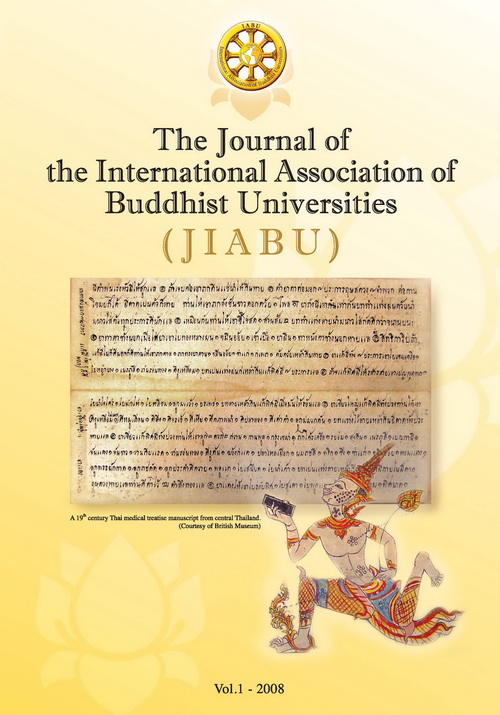Globalizing Education or Educating Globalization?
Main Article Content
Abstract
The English word education originally derives from the Latin
e-ducere, ‘to draw out, to draw forth.’ To draw forth what? For
the sake of what? Etymology already draws us into the essential
issue: why do we educate? Why do we believe that education is so
important? Needless to say, the final agreement has never been reached,
and very likely never will be. Today many people in different parts
of the world believe that their educational systems are in a state
of crisis, but there are very different ideas about what that crisis is,
and what is needed to make education better. Those questions
become even more important when we consider the double impact
of globalization on education, and of education on our globalizing
world.
Article Details
Views and opinions expressed in the articles published by The Journal of the International Association of Buddhist Universities (JIABU), are of responsibility by such authors but not the editors and do not necessarily reflect those of the editors.
References
The Third Mission: Service and the Academy 1:1
http://www.uga.edu/jheoe/abs1_1.htm (December 1, 2004).
Dunning, J. H., ed., 2003, Making Globalization Good:
The Moral Challenges of Global Capitalism, Oxford,
Oxford University Press.
Illich, I., 1999, Deschooling Society: social questions, London,
Marion Boyars.
Loy, D. R., 2002, A Buddhist History of the West: studies in lack,
Albany, NY, State University of New York Press.
-----------., 1997, “The Religion of the Market”, Journal of
the American Academy of Religion, 65:2, 275-290.
Polanyi, K., 1957, The Great Transformation, Boston,
Beacon Press.
UNU Workshop on “The Contribution of Education to the Dialogue
of Civilizations” 3-5 May 2001 OBSERVATIONS AND
RECOMMENDATIONS (December 1, 2004).
www.unu.edu/dialogue/workshops/education-e.doc
Williams, R. B., (December 1, 2004):
http://www.intrust.org/magazine/pastarticle.cfm?id=47&CFID=333
0914&CFTOKEN=93993326


